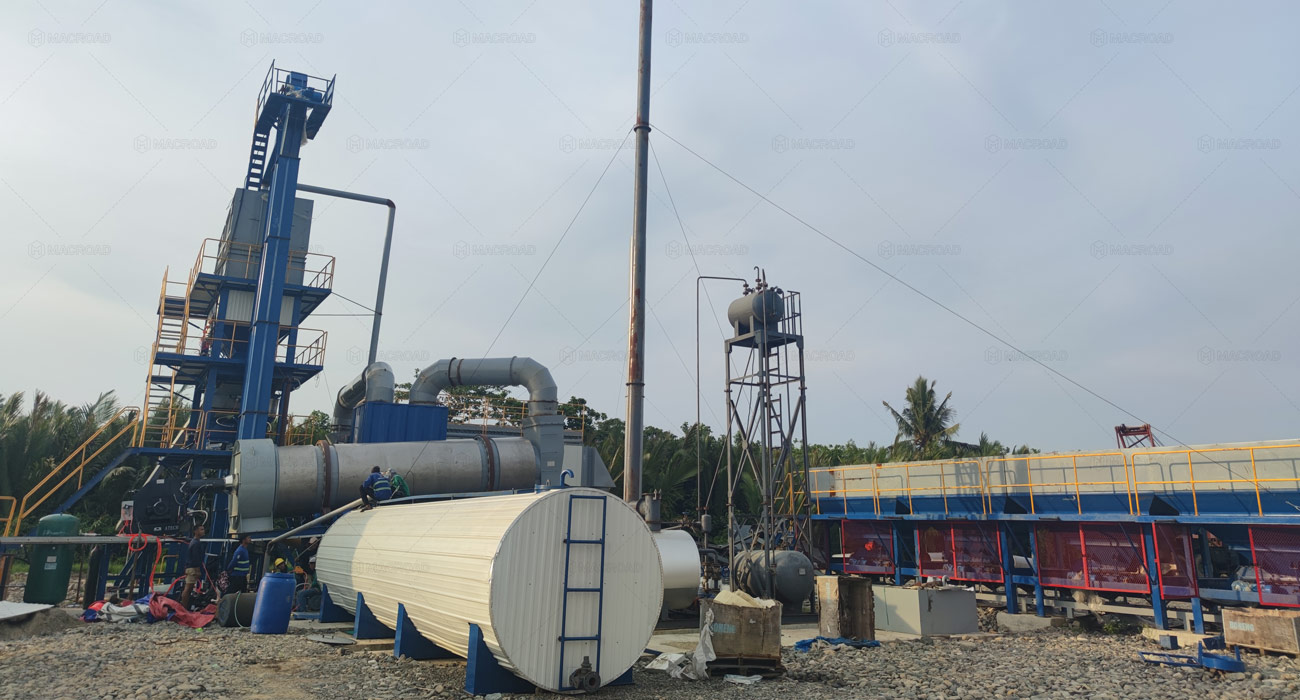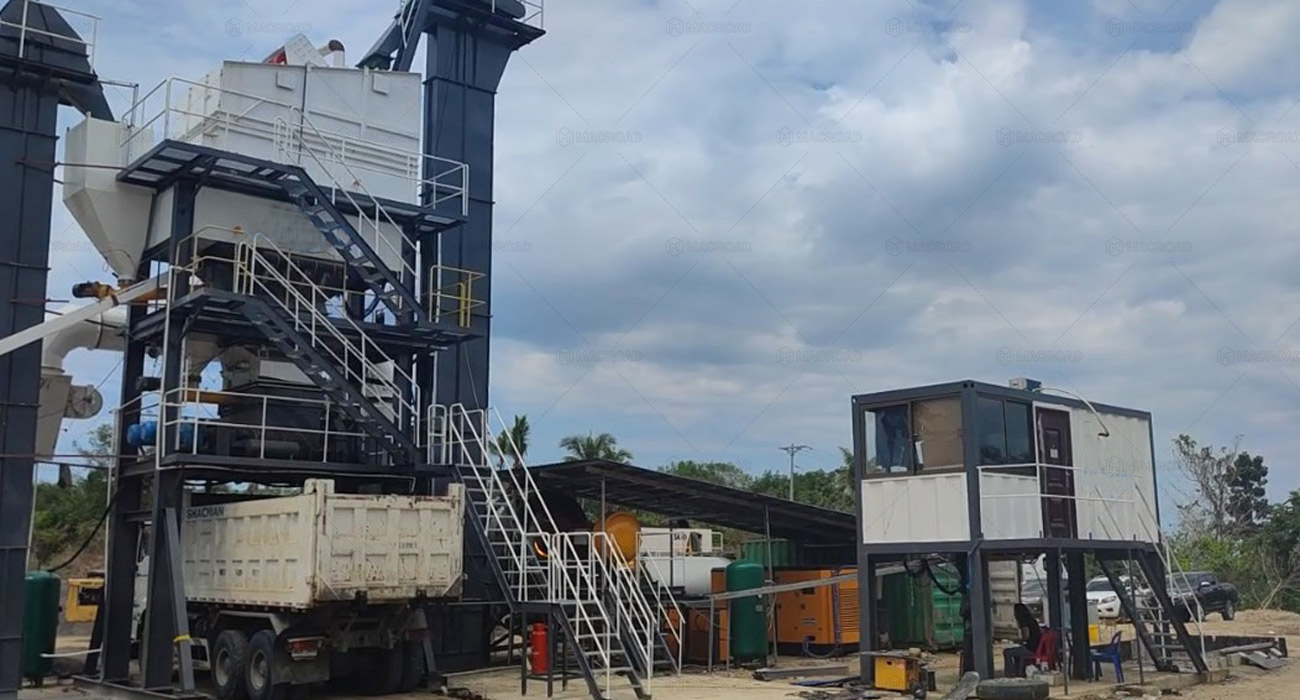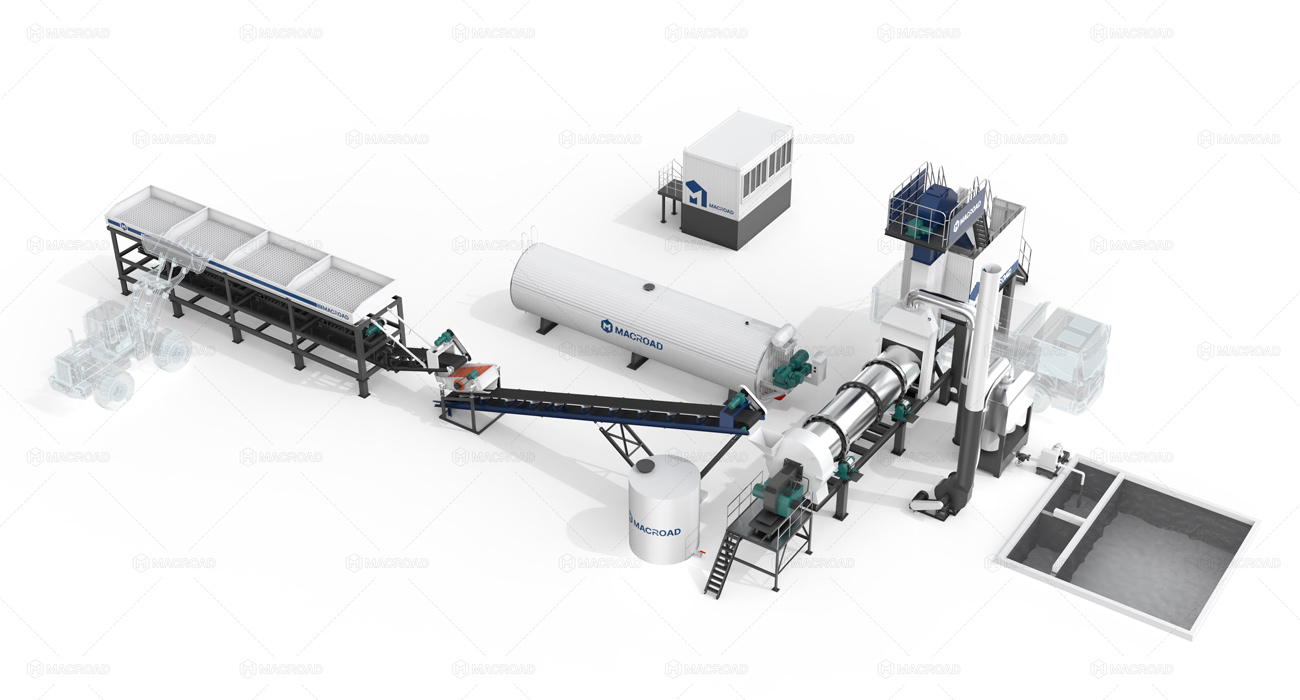As environmental regulations in the Philippines continue to evolve, local asphalt plants must adapt to meet stringent compliance requirements. When selecting between the asphalt batch mix plant process and the drum mix plant process for asphalt production, it is essential to configure appropriate environmental treatment equipment. This involves understanding the pollution emission characteristics of each process and implementing solutions such as dust removal and desulfurization devices. This article explores how asphalt plants can effectively meet environmental standards while managing equipment transformation and operational costs.

Understanding Pollution Emission Characteristics
The first step in configuring environmental treatment equipment is to recognize the distinct pollution emission characteristics of both asphalt production processes.
The asphalt batch mix plant process typically generates concentrated dust due to the intermittent mixing of aggregates and asphalt. This dust can be effectively managed through the installation of baghouse filters or cyclone dust collectors, which capture particulate matter before it is released into the atmosphere.
In contrast, the drum mix plant process produces continuous asphalt fume, which can contain various volatile organic compounds (VOCs) and other pollutants. To mitigate these emissions, implementing fume extraction systems and desulfurization devices is crucial. These systems help in reducing harmful emissions and comply with environmental regulations.
By understanding these emission characteristics, asphalt plants can choose the right equipment to address their specific environmental challenges.

Selecting Appropriate Environmental Treatment Equipment
Once the emission characteristics are understood, the next step is to select suitable environmental treatment equipment for both processes.
For asphalt batch mix plants, investing in high-efficiency baghouse filters can significantly reduce dust emissions. These filters not only capture fine particles but also improve overall air quality around the plant. Additionally, regular maintenance of these systems is essential to ensure optimal performance and compliance with environmental standards.
For drum mix plant process, it is vital to incorporate advanced fume extraction systems that can efficiently capture and treat asphalt fumes. Desulfurization devices can also be integrated to address any sulfur compounds produced during the heating process. This combination of equipment ensures that emissions remain within acceptable limits, thereby meeting regulatory requirements.

Balancing Costs and Compliance
While ensuring compliance with environmental standards is crucial, asphalt plants must also manage equipment transformation and operational costs effectively.
Investing in environmental treatment equipment can be a significant upfront cost, but it is essential to consider the long-term savings associated with reduced fines and improved operational efficiency. Additionally, some equipment may offer dual benefits, such as energy recovery systems that can reduce operational costs while simultaneously treating emissions.
Conducting a cost-benefit analysis can help plant operators make informed decisions about the types of environmental equipment to invest in asphalt plant in Philippines. This analysis should consider factors such as installation costs, maintenance requirements, and potential savings from reduced emissions.
Conclusion: Meeting Environmental Standards in Asphalt Production
As the Philippines continues to raise its environmental compliance requirements, local asphalt plants must adapt their production processes accordingly. By understanding the pollution emission characteristics of both the asphalt batch mix plant process and the drum mix plant process, operators can configure the appropriate environmental treatment equipment.
Effective selection and implementation of dust removal and desulfurization devices not only ensure compliance but also help control equipment transformation and operational costs. By investing wisely in environmental solutions, asphalt plants can contribute to a more sustainable future while maintaining efficient operations.